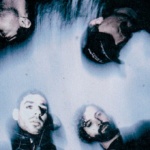In his 2015 adaptation of Macbeth, Justin Kurzel proves himself a filmmaker with no interest in attending to the competing energies within a single text, the multiple threads running through the single material. Content to rub the audience’s noses in carefully calculated doses of violence, though for all their claim to shock that film’s images are bloodless, because blood only pumps if a heart is present.
True History of the Kelly Gang, Kurzel’s new film based on the novel by Peter Carey, continues this lifeless project. Starring George MacKay as Ned Kelly, the infamous bush-ranger, the film charts his boyhood living in destitution with his mother Ellen (Essie Davis) and siblings, constantly at the mercy of whichever useless and unfeeling man happens to be in Ellen’s company through to his infamous leading of a group of outlaws under the moniker ‘the Kelly Gang.’ After serving time in prison for shooting a sergeant, Ned returns to find his family live by stealing, and his mother nearly re-married; he’s drawn into a shy romance with Irish prostitute Mary (Thomasin McKenzie) and an ill-advised friendship with constable Fitzpatrick (Nicholas Hoult). MacKay plays Kelly as an overgrown child, always looking for a figure to lead him. With this is mind, he takes to writing in order to shape his own narrative: to reject the oppression of British colonialism, the memory of his father, and provide an assertion of his own life’s meaning in his own terms- an anti-self-fashioning narrative.
It’s by no means a new phenomenon, but there has been a marked rise in the number of films generally well received because of their supposed intensity, where in reality the only thing in the film worthy of the label is the score, and even then not for good reasons. (Todd Phillips’s Joker, for one.) Jed Kurzel’s music, which pounds and strums and blares, and owes more than a little to bewitched plucking strings of Jonny Greenwood’s accompaniment for There Will Be Blood, is sound and fury signifying nothing: it never interacts with the images it’s meant to imbue with force, rather it sits on top of them. Ari Wegner’s cinematography is affected and heft-less despite straining for a rough-hewn impact, and the music underlines the deficit.
The hollowness of the imagery is a matter of Kurzel’s aesthetic of brutality. While there are passages in the film with suggestions of tact and even some humour (Russell Crowe’s mentor figure providing all of the few instances), the main body of the film is powerful only in its monotony. There is no differentiation of tone, a major problem in a film which aims always for vehemence: the consistent loudness cancels out its effects. The director’s style, which mistakes incoherence for vigour, mars the staging of crucial sequences, such as a climactic stand-off. What unsettles more than a quiet voice after much shouting? We’ll never know, in relation to this film, because Kurzel opted for more blaring noise.
Director: Justin Kurzel
Writers: Shaun Grant (screenplay by), Peter Carey (based on the novel by)
Stars: George MacKay, Essie Davis, Nicholas Hoult
- How to Build a Girl (2019) - 10th March 2020
- Kontora (2019) - 4th March 2020
- True History of the Kelly Gang (2019) - 28th February 2020










